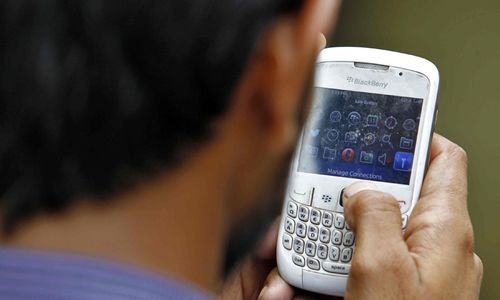ISLAMABAD: The Supreme Court on Wednesday expressed its bewilderment over the exercise of suo motu powers to suspend tax deductions on top-up cards and wondered whether such jurisdiction falls under Article 184(3) of the constitution.
“Whether such matter can be proceeded in the exercise of jurisdiction under Article 184(3) and if the answer is in affirmative then can the advance tax or the withholding tax under Section 236 of the Income Tax Ordinance (ITO) be levied or recovered from non-tax payers,” says an order dictated by a Supreme Court bench comprising Justice Qazi Faez Isa and Justice Ijaz-ul-Ahsan.
The bench had taken up a case relating to unreasonable and high amount of tax/other charges being deducted from the topping up of the balance through easy load and calling cards besides taxing on the calls as for every Rs100 charge, Rs40 was deducted in the form of different taxes, on public complaints.
Federal, provincial govts, law officers asked to file reports on tax deductions
The suo motu notice was taken by former chief justice Mian Saqib Nisar on May 3, 2018 on the grounds that the matter involved public interest with an observation whether deduction of Rs40 on every top-up card of Rs100 was not exploitation. The ex-CJP later on June 11 suspended the deduction of sales tax and at another hearing pertaining to the development of Diamer-Bhasha and Mohmand Dams had asked the federation to explore avenues to redirect the amounts so recovered to the dam funds.
When the case was taken up by the two-judge bench on Wednesday, Justice Isa wondered whether the exercise of such jurisdiction fell under Article 184(3) of the constitution. The SC, however, ordered that an appropriate bench would take up the issue as the current bench comprised two judges while a three-judge bench headed by the former chief justice had heard the matter earlier.
Also, the court asked Attorney General Anwar Mansoor and advocate generals to furnish their respective reports signed by the Federal Board of Revenue, law secretary and the attorney general as well as finance secretaries and advocate generals of the respective provinces. If the AG or the advocate generals do not concur with the replies of the government departments, they can file their separate statements, according to the court direction.
The SC asked the respective governments to provide the data as to how much tax was deducted prior to the period when the deductions were suspended.
During the hearing, the court was also told that around Rs120 billion was earned by the Punjab government through such deductions per annum, around Rs90 billion by the Sindh government, Rs36 billion by the Balochistan government and Rs55 billion by the Khyber Pakhtunkhwa, excluding tribal districts.
The provincial governments through their respective law officers also pleaded before the court that no fundamental rights were involved in the deduction of cess on the mobile phone cards.
The federal government had explained in its report filed before the apex court on May 30, 2018 that the withholding taxes were the main sources to broaden tax base for generating revenue.
On Wednesday, the SC bench observed that levying of cess or making changes in income tax laws fell within the powers of government.
During the hearing, Justice Isa also gave a comparison of a millionaire who made only a couple of calls a day with a person who earns up to Rs15,000 and whose business depends upon making a lot of calls to people. “Can such a person be brought into the tax net through such deductions?” the judge wondered.
A similar observation about court jurisdiction under Article 184(3) of the Constitution had been made by Justice Isa on May 8, 2018 when he was part of a SC’s Peshawar registry bench. He had observed that Article 184(3) granted to the apex court the power to make an order of the nature mentioned in Article 199 of the Constitution if the court considered it a question of public importance with reference to the enforcement of any of the fundamental rights. Once the apex court is satisfied that these two conditions —public importance and fundamental rights — the question of enforcement of the relevant fundament rights arises.
Justice Isa had re-emphasized that before exercising its original jurisdiction, the Supreme Court must satisfy itself that the jurisdiction it is assuming accords with the Constitution.
NAB
Separately, on an appeal filed by National Accountability Bureau (NAB), Justice Sheikh Azmat Saeed explained that NAB under the National Accountability Ordinance (NAO) 1999 enjoyed the power to arrest any person if it had sufficient material to connect the individual to the commission of an offence.
Justice Saeed explained that NAO imposed no limitation to the bureau about arresting suspects accused of committing corruption.
The two-page order, however, expected that NAB would not misuse its powers. The explanation came on an appeal by NAB in which it had pleaded that though it had no intentions to arrest Syed Jalil Arshad, facing allegations of corruption but a Nov 11, 2016 order of the Rawalpindi bench of the Lahore High Court was being misconstrued as if NAB had no powers to arrest an accused without informing him first.
Published in Dawn, March 28th, 2019














































